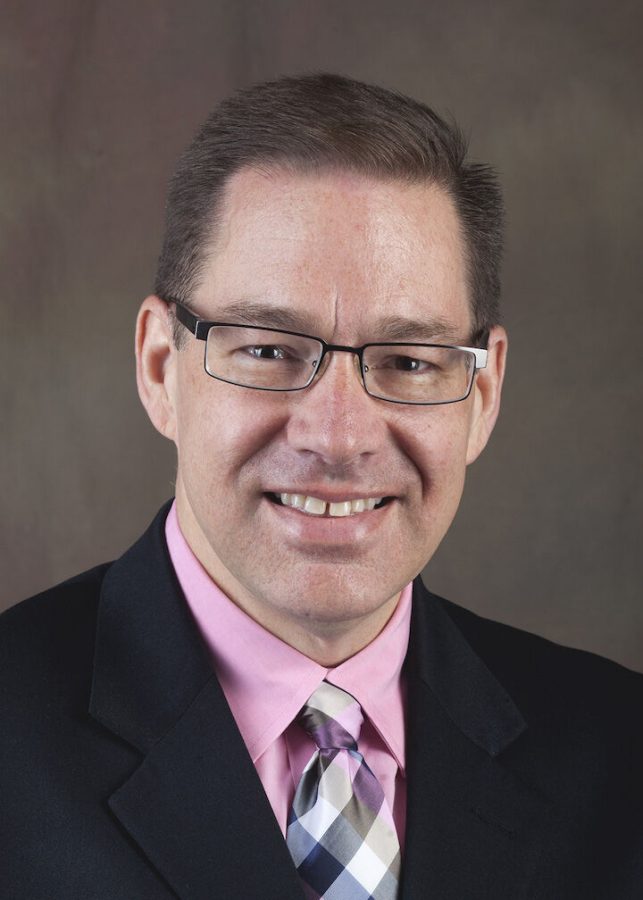Mitch McKinney named the Communication Department Alumnus of the Year
October 26, 2020
Mitch McKinney, communication professor and director of the Political Institute at the University of Missouri, has been named the WKU Department of Communication’s Alumnus of the Year for 2020.
McKinney graduated from WKU in 1987, and throughout his extensive career he has had various jobs such as becoming a staff member in the U.S Senate, an advisor to the U.S. Commission on Presidential Debates and an advisor to national election commissions in different countries.
Helen Sterk, head of the Department of Communication, said he was selected because of his political experience.
“He’s really just an outstanding guy,” Sterk said. “He’s extremely known in the field of communication for his work on politics, particularly.”
Sterk also invited him to be the Kell Distinguished Lecturer because of his work with political debates.
The series brings national and international lecturers to campus to promote a broader understanding of communication in society.
“I think the debates are a place where we see the best of all political argumentation, and I think we’d all agree that we have not seen the best, and I think Mitch is going to help us understand what is going on,” Sterk said.
McKinney has always been heavily involved in politics. During his time at WKU he was involved in student government, served as student body president during his junior year, interned for former Kentucky Sen. Wendell Ford and worked under former WKU President Kern Alexander during his senior year.
At WKU he had not decided on what he wanted to do, but he knew in the end it would be in politics. While working on his doctorate at the University of Kansas, he spent six month working under the Bill Clinton administration, where he finally made the decision to be a faculty member, researcher and advisor.
“Instead of being directly involved in politics like a candidate or campaign staffer, I would rather study politics,” said McKinney. “I feel like I had the best of both worlds. I get to study and follow politics. I also get to be a teacher and a faculty member.”
Since then his focus has been on politics, primarily the presidential debates. In his academic career at WKU, he studied communication broadly that led to political communication and eventually presidential communication.
“The one area of communication that I thought was most useful for voters and the most fascinating was candidate debates,” said McKinney.
He began his focus on the debates as a grad student, where he was a part of a research team for the Commission on Presidential Debates in 1992, where they were in charge of many roles, such as structuring and modifying the debates.
Another way he remained active in the debates was by working with election commissions for different countries. While working as a faculty member at the University of Oklahoma, a graduate student from South Korea involved in planning the first presidential debate for South Korea had invited him to the country to help structure the presidential debate in 2002.
“Many countries with emerging democracies and countries that did not have party leaders like prime ministers or chancellors had turned to us for models and advice,” McKinney said. “Fortunately, I had been involved in assisting those countries.”
McKinney now returns to his alma mater, where he says he is pleased to represent the alumni of the communication department.
“I was delighted to be associated with that department as well as the successful alumni doing all kinds of wonderful things,” McKinney said.
He will also be a lecturer for this years Kell Distinguished Lecture Series called “The Good, The Bad, and the Ugly of Social Media Use and Presidential Debate Viewing”.
The lecture will summarize some of his recent research that has focused on social watching. Social watching is when people engage in the presidential debates through social media.
McKinney plans to answer a number of questions concerning the new topic such as how it affects people and how it engages people in the debate.
The event will take place via Zoom on Oct. 27. To receive the zoom link, email [email protected].
Gabrielle Bunton can be reached at [email protected]. Follow her on Twitter @gabriellebunton.
























